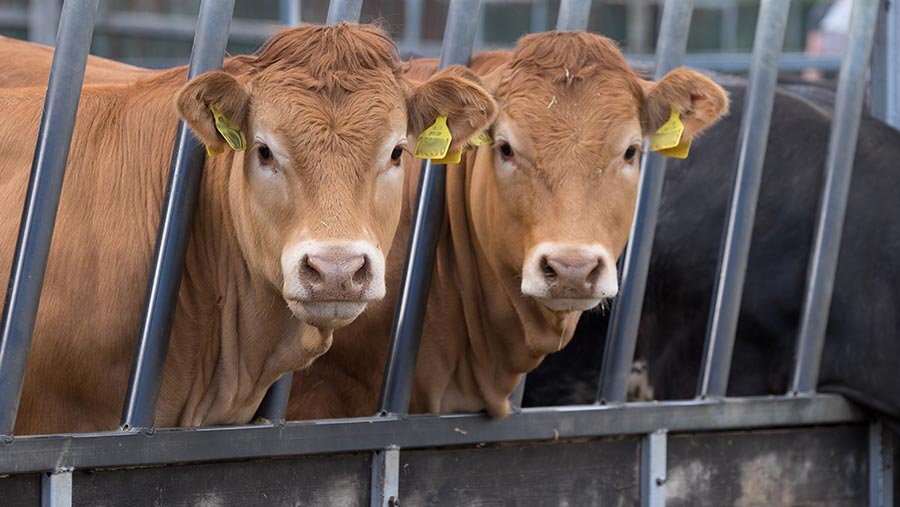DNA samples to be used to ensure cattle traceability
 DNA sampling would allow tracing from a ready meal back to an individual animal's ear tag © Tim Scrivener
DNA sampling would allow tracing from a ready meal back to an individual animal's ear tag © Tim Scrivener Trials are under way to test how DNA samples can be used to improve traceability in the beef supply chain.
DNA traceability offers the potential to identify and trace all beef back to the British animal ear tag and farm of origin with scientific precision and accuracy – even for complex supply chains such as ready meal production.
See also: Guide to understanding a beef-killing out sheet
The aim is to give consumers greater transparency around livestock farming and animal welfare as well as the ability to confirm the provenance of products served up in foodservice and manufacturing sectors in the UK.
AHDB has funded the project and is working with the Association of Independent Meat Suppliers (Aims), the British Meat Processors Association, the NFU, and DNA traceability company IdentiGEN.
How it works
The first step is to build the carcass DNA archive. Samples are collected at the point of slaughter and associated with the animal’s ear tag and other relevant data.
This forms the reference database which can be used to confirm the precise origins of products sampled further down the supply chain, such as in the marketplace.
Sampled products can be single-muscle products or more complex products such as mince and manufactured meats in items such as a ready-meal lasagna. Alternative approaches may be adopted for different species.
Market gaps
AHDB international market development director Phil Hadley said: “Under current legislation, clear country of origin labelling is required for beef and mince sold at retail. This is not the case for products destined for the foodservice or manufacturing sectors.
“This pilot project will address a number of gaps within the UK’s beef market. Key to having an economically sustainable livestock sector is the need to achieve carcass balance and to recover premia not just from the most expensive steaks and joints, but from the entire carcass.
“This requires robust and effective traceability across all segments of meat production, not just in retail.”
The project will mirror initiatives under way in other European markets.
Aims policy director Norman Bagley said he expected the pilot project to be successful and for the pig and sheep sectors to adopt its findings.
